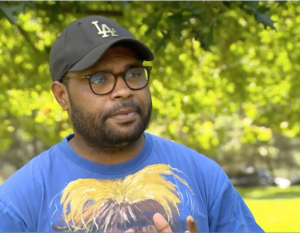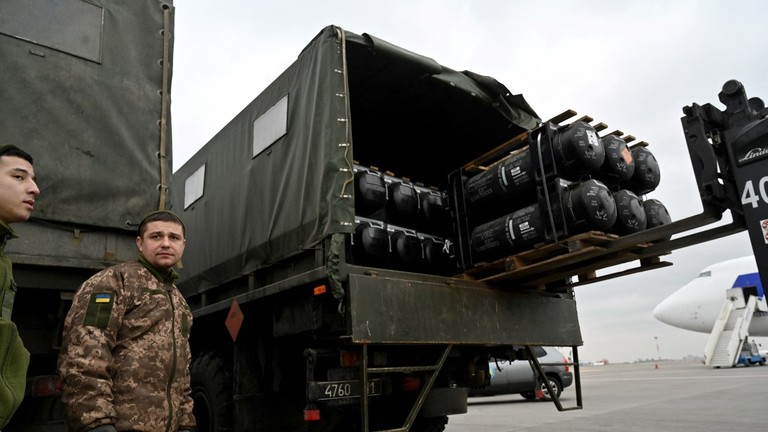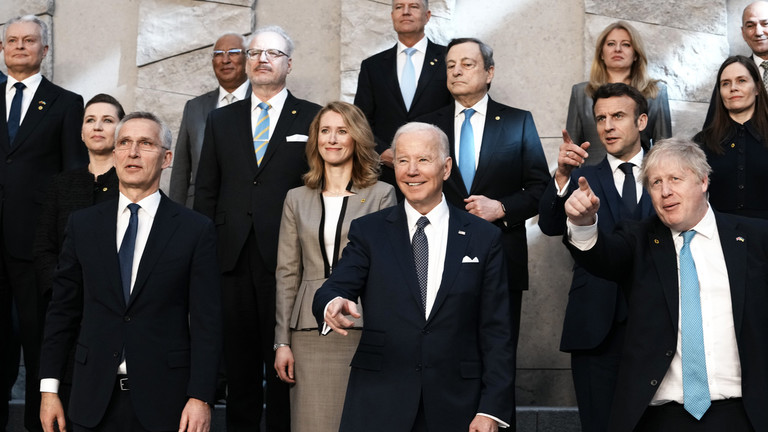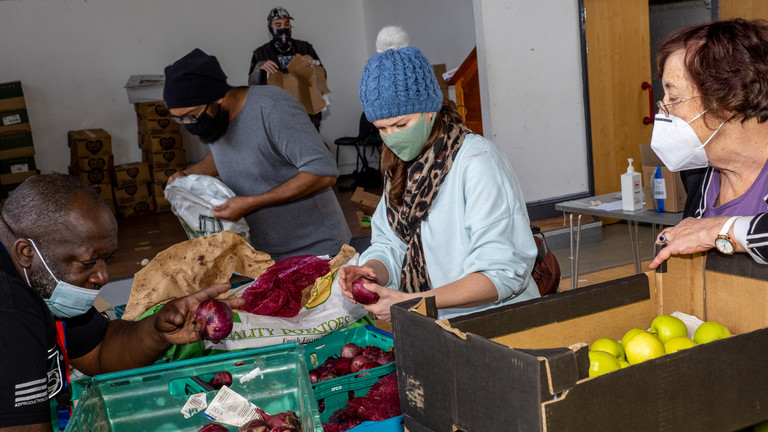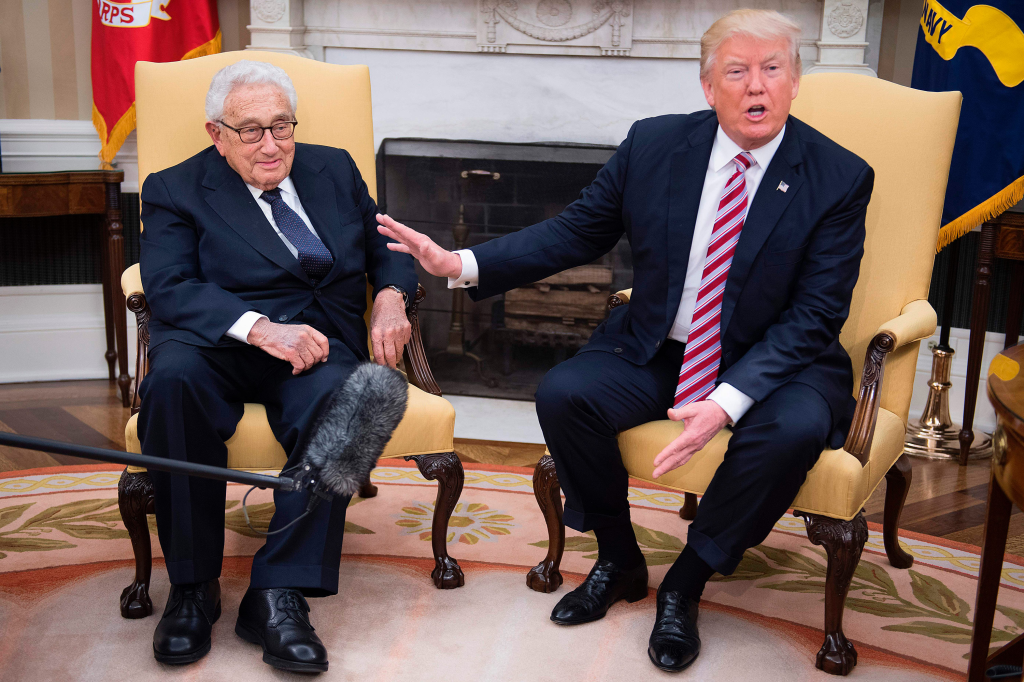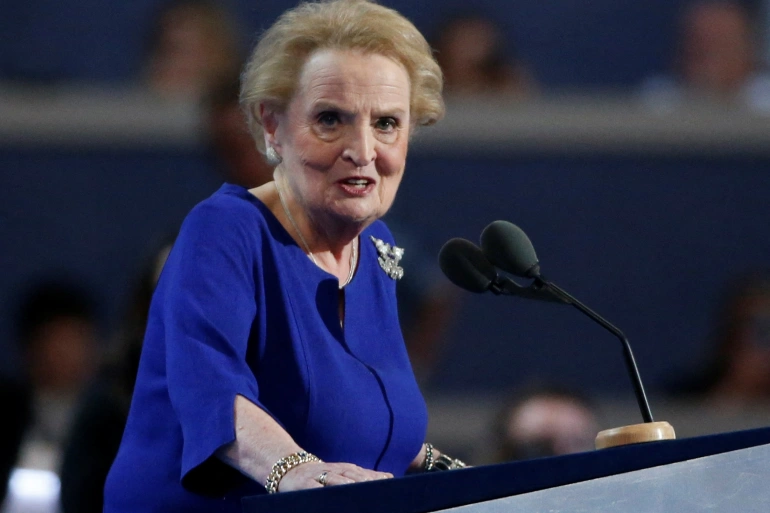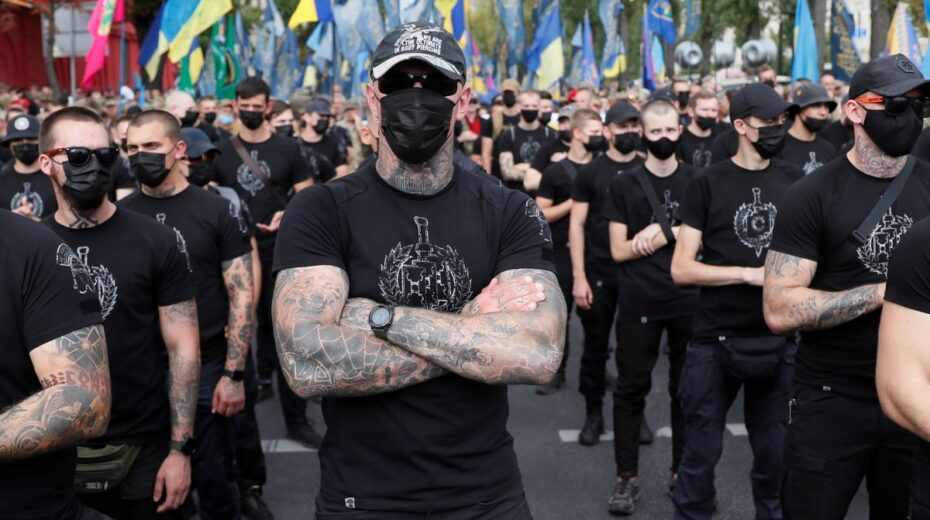What do a six-year-old in the United States and an 85-year-old in Russia have in common besides being on opposite sides of a war?
They’re both feeling the strain of a warming planet.
“Is the earth going to get so hot that we can’t survive?” my young son asked me last summer as we plodded through the woods behind our Maryland home. I wasn’t certain, I replied hesitantly. (Not exactly the most reassuring answer from a mother to a question I ask myself every day.) We had just left my younger child at home, because she started wheezing when she stepped into that already more than 100-degree July morning.
A few summers earlier, during a visit to a town about 4,500 miles away near St. Petersburg, Russia, an elderly friend of mine said to me, “When did it become so hot?” Like my daughter, she was breathing hard and continually glancing back toward her doorway.
Since the 1990s, as an anthropologist of human rights and war, I’ve traveled to Russia. I was then visiting the farm where my friend grew crops to add to the food she purchased with a government stipend she got as a survivor of the Nazis’ siege of her city during World War II. She gestured towards the apples in her orchard and shook her head. Canned each fall, they provided part of her diet, but fewer of them seemed to be growing each year. Would she die of hunger and heat, I wondered, after surviving a war?
Usually, when I brought up my worries about our warming climate, she would just joke. “We could use a little global warming in Russia,” she would say and gesture at the icicle-laced landscape around her wooden home. I often heard some version of that satirical refrain in cities across Russia where, in winter, the air can grow so cold it stings your lungs.
On that last visit of mine, however, it was clear that both the frost and the heat were becoming ever more severe and unpredictable. Among acquaintances and activist colleagues alike, I found a growing awareness of environmental issues like deforestation and water pollution. But they were careful in what they said, since Russian nongovernmental organizations regularly faced threats and even politically motivated charges that could force them to close.
Still, across Russia, I had also seen examples of local authorities listening to such activists and sometimes making small changes like halting logging projects to protect a community’s food supplies or stopping construction that’s polluting local wells. And increasingly, climate change was growing harder even for Russia’s autocratic president, Vladimir Putin, to ignore, with Siberia recently all too literally on fire and its melting permafrost creating a “methane time bomb” of greenhouse gases that will help drive heating globally in a potentially disastrous way.
The Environmental Costs of War
It seems ironic, though not exactly surprising, that, by invading Ukraine last month, yet another leader who claims to care about humanity’s future started a new war (just what we needed!) on this planet. And that decision has left me haunted by images of climate change at war — the exhaust emanating from the back-to-back traffic of those driving away from Ukrainian cities like Kyiv, as millions of civilians continue to flee the devastating bombardments of the Russian military. Or think of the smoke above the military base in western Ukraine that Russia attacked or the footage of the desperate residents of the besieged port city of Mariupol burning firewood to stay warm.
In 2011, I helped found Brown University’s Costs of War Project, which took on the task of tracking first the human and financial costs of the American global war on terror and now of armed conflicts like the one currently unfolding in Ukraine. As that Russian invasion continues so disastrously, what should be obvious to all of us is that any war will only further exacerbate another killer on this planet — and that killer, of course, is climate change.
We started the Costs of War Project exactly because the true casualties and financial costs of armed conflict are notoriously difficult to calculate, given deliberate government obfuscation, not to speak of the chaos of battle. But there’s another cost that’s becoming all too clear, one we need to recognize. Consider the massive amounts of energy expended to fly fighter jets, or fire missiles, or move and supply soldiers, or send a convoy of tanks toward Kyiv. All of that, devastating in itself, now also becomes part of another war entirely, the human war that’s heating this planet and already affecting ever more of its nearly eight billion inhabitants.
Modern warfare, after all, is disturbingly energy intensive. Consider just a single mission in 2017 when two U.S. B2-B Stealth Bombers flew about 12,000 miles to strike Islamic State targets in Libya. They alone emitted about 1,000 metric tons of greenhouse gases. Consider this as well: we know that the U.S. military’s greenhouse gas emissions annually are larger than those of countries like Denmark, Portugal, and Sweden. And forget the Russians for a moment: the U.S. still has military operations in more than 85 countries (and counting!).
Worse yet, fighting a war means diverting energy and resources to killing rather than to sustainable development. Countries involved, even peripherally, in such conflicts are likely to have a far more limited capacity to deal with that other war, the environmental one. Take, for example, Italy and Germany in the wake of the invasion of Ukraine. Faced with the need to replace natural gas and other fuel delivered from Russia, Italy now has provisional plans to reopen previously shut coal plants; while Germany, faced with an even greater energy crisis without Russian energy supplies, may now delay plans to close its last coal plants until 2030. Both of those are small climate disasters. Obviously, there’s no way of imagining when Ukraine’s cities will be able to deal with climate change again. The now-destroyed Mariupol is a prime example. Once labeled by the European Bank of Reconstruction and Development’s Green Cities Program as one of the most “engaged” cities for its efforts to invest in renewable energy and clean up water pollution, it’s now in a desperate struggle for its own survival.
Similarly, according to the Conflict and Environment Observatory, since the start of the war between Ukraine’s military and Russian-backed separatists in the Donbas region in 2014, the main power plant there has had to use reserves of low-grade, high-polluting fuel. The higher-grade kind once supplied by the central government of Ukraine is no longer available. Other impacts of this war and wars like it include clear-cutting forests to house refugees and powering camps with gas generators. Makeshift, hazardous methods of waste disposal like U.S. burn pits on military bases in Iraq were another example of the environmentally destructive methods so often sanctioned under war conditions.
The U.S. and Its Climate Inaction
Lately, headlines warning of environmental catastrophe have been thoroughly displaced (to the extent they even existed) by headlines about war. We’re all talking about the possibility of a World War III, but there are far too few conversations about the climate impact of the military buildup already affecting Europe so radically.
Consider it typical of our moment (and U.N. Secretary General António Guterres the exception) that President Biden essentially skipped climate change in his State of the Union address, even as he drew bipartisan applause for calling on Americans to unite in support of Ukraine. A wildly scaled-down version of his Build Back Better spending bill that might once have channeled $3.5 trillion towards investment in social services and clean energy didn’t even muster sufficient votes in his own party to make it through the Senate. (Thank you, coal magnate Joe Manchin!)
Yet just two weeks into the war between Russia and Ukraine, a bipartisan Senate voted 68-31 on a $1.5 trillion government spending bill that authorized $13.6 billion in military and humanitarian aid for Ukraine. The package includes sending tens of thousands of U.S. troops to NATO countries, paying for the $350 million in weaponry this country has already sent to the Ukrainian military, our intelligence aid to that country, and money to help enforce sanctions against Russia. And it’s clear that the spigot has just been turned on. The Biden administration added another $800 million in weapons and protective gear for Ukraine’s military by week three of the war. Most recently, it committed $1 billion more to assist European countries in accepting Ukrainian refugees, while vowing to admit 100,000 Ukrainian refugees to U.S. soil.
The human costs of war, of course, continue to unfold day by day as parts of Ukraine are destroyed and thousands of people on both sides are killed in the fighting, though estimates of the numbers vary widely. That’s part of the problem. Calculating war’s true costs takes many years, while even before the smoke clears another war, an environmental one whose casualties will, in the long run, be staggering, is gearing up, barely noticed by so many.
Environmental Carnage, Then and Now
Climate change is affecting peoples’ health, the natural environment, and our infrastructure everywhere. According to the U.N. Intergovernmental Panel on Climate Change’s latest report, these effects, including intensifying extreme weather, a greater frequency and spread of diseases, severe future water shortages for roughly half the global population annually, and more frequent flooding and droughts, were intensifying even before the latest war began.
Scientists say that, given the world’s current rate of energy consumption and the temperature change that accompanies it, we should by 2100 expect outcomes of this sort: a five-fold increase in extreme weather events like flooding or wildfires; a leap in the percentage of the global population exposed to deadly heat stress from 48% to 76%; more than a billion coastal inhabitants adversely affected by rising seas and other climate risks by mid-century; and 183 million additional malnourished people by then.
Somewhere in this flood of bad climate news, however, there may prove to be a strange silver lining: such a range of potential climate crises that pay no attention to borders should ultimately have the potential to connect us to our geopolitical enemies (though this seems even less likely than it did when the Ukraine war began, now that Putin’s climate envoy has resigned in protest). The development of climate diplomacy has never been more urgent, since without collective action aimed at creating a carbon neutral world by 2050, we’ll all lose this fight.
In 2010, I took a four-day train trip from St. Petersburg, Russia, to the Krasnodar region near Ukraine, for a friend’s wedding. The heat that July was already stifling. Drought had led to wildfires that were sweeping across European Russia, blanketing Moscow in putrid smoke and reportedly resulting in tens of thousands of excess deaths from various causes related to heat, pollution, and the fires themselves.
Like me, other passengers opened the windows of our sleeper cars for a breeze only to find the air so smoky it covered our faces in soot within minutes. At one point, a group of new Russian army recruits, skinny adolescents with acne cratering their faces, boarded my car. They joked about how the air made them feel like they’d been smoking all day, when they were trying not to so that they could carry out whatever mission lay ahead of them in Russia’s conflict-ridden borderlands. (Putin’s crew was then fighting a counterinsurgency war in nearby Chechnya.) The soldiers scraped together their spare change and insisted on preparing meals for us all to share from goods purchased in outdoor markets where the train made stops.
During that trip 12 years ago, it already felt as though something was changing in terms of Russia’s relationship to the world. It was becoming harder for journalists to write critically about the government, particularly its military. Luxury restaurants, car dealerships, and cosmetics stores were popping up, yet ordinary Russians were still struggling to make ends meet.
As that train stopped in small towns, grandmothers and children holding paper trays of homemade chicken cutlets and cucumbers for passengers to buy looked so much more wind-worn and soot-covered than we did. At one stop, a policeman in his fifties, with his wife and two kids, heading home to Chechnya, joined me in my cabin. They’d been on vacation in Crimea, which Ukraine still controlled then. “Did you know that it had once belonged to Russia?” he asked me. It was easier, he added, for his family to go there when he was a kid and Ukraine was still a part of the Soviet Union, but it was beautiful and I should visit. He and his wife took turns wiping their children’s sooty faces with wet washcloths. “My God, when did this heat get so bad?” he asked not exactly me, but the air, the planet.
And it’s true, I’ve never forgotten the heat that enveloped us all then and my early sense of our shared humanity in the face of a changing climate. Of course, as anyone in the American West who experienced the record fires, heat domes, and megadrought of the last year knows, it’s only been getting worse.
As different as our all-too-fragile democracy still thankfully is from Russia’s autocracy, what we do have in common is short-sightedness. It causes the political class in both countries to focus on military solutions — remember the disastrous Global War on Terror? — to geopolitical problems with deep historical roots. What if we had marshalled the support of intermediaries like Finland or Israel back when Volodymyr Zelensky first reached out to Putin upon taking office as Ukraine’s president in 2019? What if long ago Washington had declared that Ukraine would never be a candidate for membership in NATO? Perhaps today its president wouldn’t be pleading for a NATO no-fly zone that could take the world to the existential edge of nuclear war.
What might still make a difference would be nonviolent, diplomatic steps to protect the victims of this war, paving the way for diplomacy to triumph over militarism and sustainable development over destruction. It makes me sick to my stomach that the window to act is closing for the people I love, near and far. Not just the horrific killing and destruction of the moment, but the long-term suffering likely to come from the environmental damage we’re causing should impel us all to call for a major diplomatic push to end the nightmare in Ukraine now. After all, if the world’s great powers don’t pull together soon on climate action, we’re in trouble deep.
This post was originally published on Latest – Truthout.





